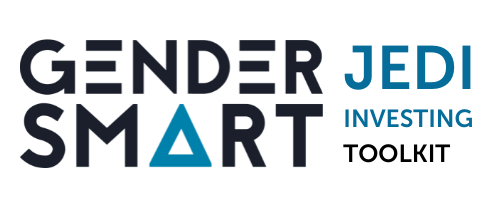The Bias of ‘Professionalism’ Standards
Professionalism has become coded language for white favoritism in workplace practices that more often than not privilege the values of white and Western employees and leave behind people of color.
IRIS+ and 2X Challenge Gender Lens Indicators
The GIIN and CDC (acting on behalf of the Gender Finance Collaborative), and the 2X Challenge teams worked collectively to align the 2X Challenge indicators to IRIS metrics. The resulting IRIS+ system is a foundational gender lens investing framework, which a JEDI lens can be layered upon.
Asking the Right Questions to Guide Investments in Closing Racial Wealth Gaps
To determine which investments they make, Living Cities starts by asking themselves a series of questions whenever they evaluate a new transaction.
Illinois State Treasurer's Office Standardized Due Diligence Questionnaire
Illinois State Treasurer's Office Sustainability/Equity/Diversity and Inclusion Standardized Due Diligence Questionnaire
The Questions LPs Can Ask for Due Diligence on Diversity and Inclusion in VC
From Diversity VC: A list of questions which Limited Partners can use to ask GPs at venture funds during the due diligence process to better understand their approach to diversity and inclusion. The first set of questions is taken from the ILPA guidance, the second has been compiled by Diversity VC in discussions with GPs and LPs in Europe and the US.
Two Lenses, One Vision: Investing for LGBTQI and Gender Equity
This report from Cornerstone Capital Group makes the case for this thematic fusion, discussing how investors and asset managers can consider LGBTQI alongside gender equity in their investment analysis, and highlights existing investment strategies that reflect this approach.
How Can Investors Help Confront Racial Injustice?
This impact brief from Zevin Asset Management is an update of their original call to action and a review of their continuing work to build an awareness of racial justice into investment — both as an analytical lens and an economic reality. Doing so helps to protect the value of their portfolios and channel their clients’ voices to help create positive change.
Racial Equity: The Economic and Business Case for Change
This page from Mission Investors Exchange compiles evidence, in reports going back to 2013, illuminating how and why racial equity is good for business — and how inequity causes economic harm — with increasing implications as America's heads towards a population in which more than half of U.S. workers and consumers will be people of color by 2050. Impact investors can use these data to make the case for why pursuing racial equity in impact investing may indeed be a fiduciary responsibility and lead to long-term gains.
Diverse Asset Managers: Opportunities for inclusion
The Knight Foundation reviews the data on firms owned by women and minorities in the asset management industry.
The Economic Benefits of Improving Social Inclusion
The Special Broadcasting Service (SBS) commissioned Deloitte Access Economics to quantify the economic dividend from raising the level of social inclusion in Australia, with a focus on cultural diversity, in order to help shape its future policies and strategies for delivering on its Charter. The quantitative analysis in this report largely focuses on the benefits of social inclusion for culturally and linguistically diverse communities, specifically migrant communities, but this report recognises that there are many other groups that contribute to diversity and for whom improving social inclusion is likely to result in additional economic benefits.
Racial Equity: Foundational Concepts
If you're early in your journey of exploring the links between racial equity and impact investing, a useful place to start is by understanding core concepts behind racial equity and how it differs from concepts such as diversity and inclusion. To help you get started, Mission Investors Exchange has compiled a brief list of frequently used terms, synthesized from the resources of leading educators.
Impact Investing in the Indigenous Context: A Scan of the Canadian Marketplace
Indigenous issues remain at the forefront of Canadian policy, with many communities still lacking the necessary infrastructure and services related to water, education, economic development, and health. While these issues have traditionally been targeted by government, non-profits and charities, we believe that impact investors can play a role as well. This report seeks to answer a crucial question that has been under-examined in the Canadian impact investment market: What is being done by impact investors, and how can the sector contribute to the betterment of Indigenous communities in Canada? How will the emergence of new intermediaries shape the Indigenous Finance landscape over the next decade?

